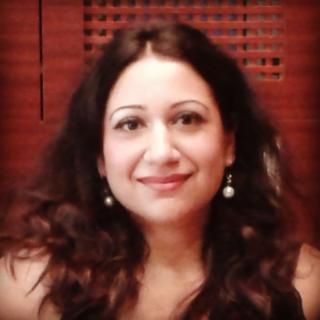Guest Lecture: “Partition Novel as Trauma Fiction: A Postcolonial Reading” (10.07.2024)
Prof. Dr. Nadia Butt (Goethe-Universität Frankfurt am Main; Chair of Global Anglophone Literatures and Cultures) will give a guest lecture on the topic Partition Novel as Trauma Fiction: A Postcolonial Reading in the seminar Anglophone Postcolonial Literatures. All interested students and members of staff are invited to attend the guest lecture as well. This is an event organised by the Chair of English Literary and Cultural Studies. If you have any questions regarding the event, please contact Dennis Henneböhl at dennis.henneboehl@fau.de.
Date: 10 July 2024, 4-6pm
Room: Kollegienhaus, KH 1.016
Abstract
The end of the British Raj (1858-1947) on the Indian subcontinent led to the partition of India in 1947 into the two separate nation-states of India and Pakistan. The Great Partition, as it is called by the historian Yasmin Khan (2007), caused millions of deaths and displacement of innocent people. This apocalyptic event in South Asian history has generated a great amount of literature in English, which came to prominence with the publication of Salman Rushdie’s historical novel Midnight’s Children in 1981. Both Indian and Pakistani writers have captured the trauma and tragedies of the partition victims in their novels to bring out the impact of partition on the lives of common people. By fictionalising history, the novelists seek to render voice to the suffering and sacrifices of different communities in India, particularly Hindus, Muslims, and Sikhs, who began to fight against each other in the name of ethnic and religious differences at the time of partition. The significance of partition literature lies in the fact that it breaks the silence of the past and underlines, what Urvashi Butalia terms, the human dimension of partition (2000), which is missing in state records or history books.
This talk examines three novels by South Asian diasporic women writers about the partition of India in 1947 as trauma fiction, a term developed by Ann Whitehead (2004), from a postcolonial perspective: Shauna Singh Baldwin’s What the Body Remembers (1999), Kamila Shamsie’s Kartography (2001), [“C” in the word “cartography” is deliberately replaced by “K” to indicate “Karachi’s cartography”], and Anjali Enjeti’s The Parted Earth (2022). My contention is that a considerable number of partition novels, especially written by women writers, can be read as trauma fiction, as they fictionalize the horrors of the civil war around the division of the subcontinent, which turned into ethnic cleansing and the repercussions of these events on the generations to come. Drawing upon research on trauma, particularly by Stef Craps, Marianne Hirsch, and Gabriele Schwab, and locating trauma theory in a postcolonial context, I aim to investigate trauma and transgenerational trauma as presented in selected partition novels from a feminist angle. To this end, I argue that trauma tends to surface in three major ways, as these novels move between memory and history, which act as family archives: Firstly, it surfaces in relation to postmemory (Hirsch 2012); secondly, it urges us to ‘decolonise’ trauma theory (Craps 2012); and finally, it lays bare the haunting legacies (Schwab 2010) of the first generation, transmitted to the second generation as indirect or ‘second-hand’ trauma (Kaplan 2005). By thinking beyond the Eurocentric orientation of trauma theory and placing it in a transnational and transcultural context (Rothberg 2008; Erll 2011), the lecture seeks to shed new light on the various literary representations of trauma in contemporary partition novels.
